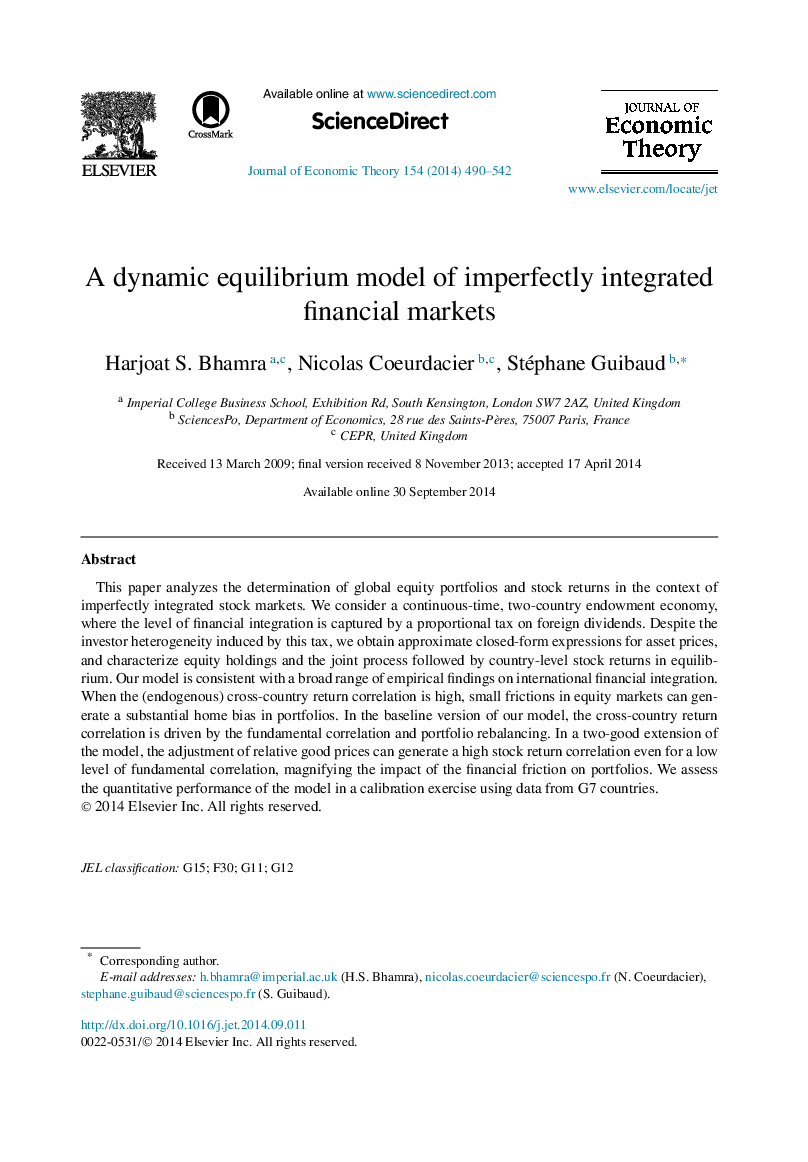| Article ID | Journal | Published Year | Pages | File Type |
|---|---|---|---|---|
| 956797 | Journal of Economic Theory | 2014 | 53 Pages |
Abstract
This paper analyzes the determination of global equity portfolios and stock returns in the context of imperfectly integrated stock markets. We consider a continuous-time, two-country endowment economy, where the level of financial integration is captured by a proportional tax on foreign dividends. Despite the investor heterogeneity induced by this tax, we obtain approximate closed-form expressions for asset prices, and characterize equity holdings and the joint process followed by country-level stock returns in equilibrium. Our model is consistent with a broad range of empirical findings on international financial integration. When the (endogenous) cross-country return correlation is high, small frictions in equity markets can generate a substantial home bias in portfolios. In the baseline version of our model, the cross-country return correlation is driven by the fundamental correlation and portfolio rebalancing. In a two-good extension of the model, the adjustment of relative good prices can generate a high stock return correlation even for a low level of fundamental correlation, magnifying the impact of the financial friction on portfolios. We assess the quantitative performance of the model in a calibration exercise using data from G7 countries.
Keywords
Related Topics
Social Sciences and Humanities
Economics, Econometrics and Finance
Economics and Econometrics
Authors
Harjoat S. Bhamra, Nicolas Coeurdacier, Stéphane Guibaud,
